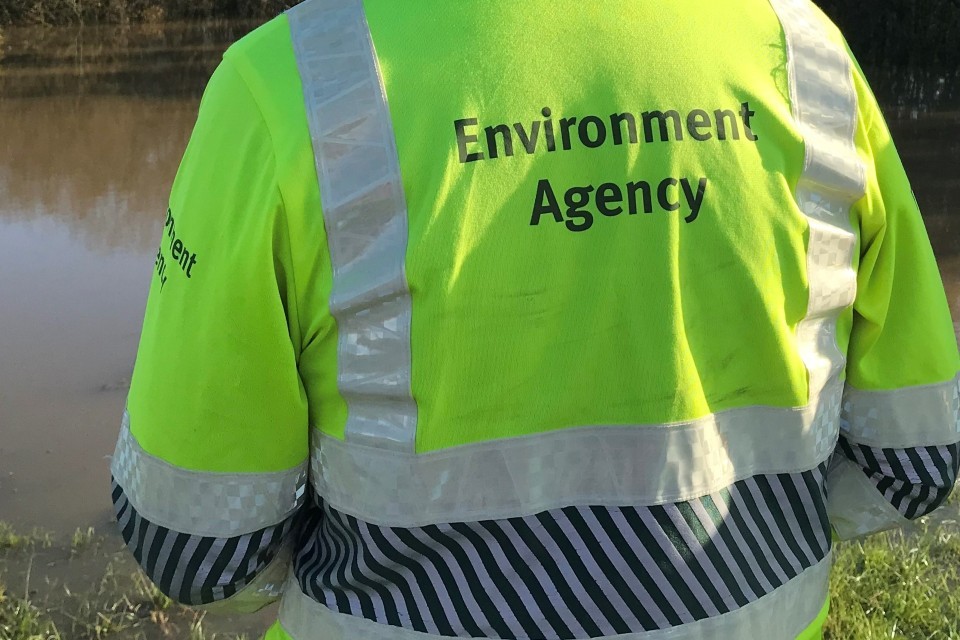Good morning, everyone.
Thanks so much for being here. And thanks to the Centre for Social Justice for hosting us. And thanks to Andy.
It’s great to be back here, this time as Education Secretary, six months into delivering our Plan for Change.
I know CSJ shares this government’s commitment to ensuring that, whoever you are, wherever you come from, ours should be a country where hard work means you don’t just get by but you get on.
Some of you were here last year, when I started my speech with a story. And today I want to start with a story too:
A story about how and why the change I am bringing to the education system matters to me.
It’s my story.
I grew up in the late ’80s and early ’90s, a shy little girl, from a tough street in the northeast of England, [political content removed]
I never met my dad. It was just me and my mum – and my grandparents who lived nearby.
We didn’t have much. One winter, a neighbour, who himself, he didn’t have very much, found out I’d been playing outside wearing only a jumper.
He put money through the letterbox in an envelope marked “for Bridget’s coat”.
Now, not everyone turned to kindness. Crime was a big problem. Our house was burgled time and again.
And when my mum reported it to the police, our windows were put out, a man turned up with a baseball bat.
It didn’t seem like that big a deal at the time. These were just things that happened, and frankly not just to us.
I think often of the children I knew then, held back by who they were, by where they were born.
So many on my street were denied the opportunity to get on and to succeed.
Not because they were lazy, they weren’t.
They were no less talented than I was, no less ambitious, no less deserving of success.
But I was given the opportunities that they were denied. I went to great schools, I was taught by wonderful teachers, I had a family that prized learning.
I was in the very first full cohort to sit SATs tests at Key Stage 1, 2 and 3. I benefited from the national curriculum brought in by a [political content removed] government.
My school took up that challenge to push kids like me to achieve.
I worked hard, of course I did.
But I had the good luck to go to a great school, to have a family who cared deeply about education, a grandfather who read to me week in, week out.
And like so many stories, this one has a moral lesson at its core.
I am proof that the system can work, that a great education can be a transformational force, that background doesn’t have to be destiny.
That belief formed then, is the core of my politics now.
That the promise our children deserve, that hard work is what counts, no matter your background.
I believe in that promise, in making that dream real.
But I saw so many of my friends from my area let down, let down by a system that lacked a restless ambition for their futures, content, too often, to deliver a mediocre education, middling, in schools that drifted, an education that was seen as ‘just fine’ for ‘these kids’.
For kids like me.
Michael Gove used to call this ‘the soft bigotry of low expectations’ and with good reason: he was right.
But I don’t need to be told about that. I grew up with it all around me, in my community, holding back my friends.
I don’t forget. Not now. Not ever.
It’s these memories of those injustices, the doors closed, the dreams stifled, the futures denied, that’s what drives me forward in this job.
I get up every morning to right those wrongs.
To break down the barriers to opportunity for each and every child.
Background wasn’t my destiny.
And I won’t rest until that is true for all children.
That is my vision for education.
Opportunity, for those children, for all children. That is our mission, driven by the Prime Minister’s Plan for Change.
An excellent teacher for every child, a high-quality curriculum for every school, a core offer of excellence for every parent.
Raising a floor of high standards, below which schools must not slip, above which schools can and must innovate, with no ceiling.
Now, those memories are from a long time ago. And in the decades since, standards in England’s schools have risen, and millions of children have benefited.
Our system now has many strengths, to build into that core. The greater use of evidence in classrooms across the country.
No more flying blind, guided only by tradition.
Now, what matters is what works [political content removed] reformed exams – more rigour, more challenge.
Our national curriculum, a national strength, one from which we will build.
Raising the floor, removing the ceiling.
Take one example, one that matters immensely.
Every child learns about the Holocaust, thanks to the national curriculum. That’s the floor we need.
But teachers can then innovate in how they teach it.
Stories from newspaper archives of troops finding concentration camps or hearing the testimonies of Holocaust survivors who have been immortalised using recordings and virtual reality technology.
And now the Curriculum and Assessment Review will take us onward, delivering a core curriculum for all children that is deep and rigorous, knowledge-rich down to its bones.
And that matters so much, knowledge is foundational, the building blocks of learning.
It’s no use developing skills if children lack the knowledge to back it up and that curriculum must be taught by the very best teachers.
As a profession as well as a calling, teaching has come on leaps and bounds, far ahead of when I was at school.
The use of phonics is just one example where this has delivered for millions of children. Over 100,000 more children every year are securing the phonic foundations of reading since 2012.
And we will continue down this proud path, for future generations.
But now, right now, we need more teachers.
That’s why we are committed to recruiting an additional six and a half thousand new expert teachers over the course of this parliament, ensuring we have more teachers where they are most needed across our colleges and our secondary schools, both mainstream and specialist.
Because more teachers in our classrooms means more attention for our children. And that attention makes it easier to learn, and drives better attainment.
More teaching, better learning.
But more alone is not enough.
I want to drive up the quality of teaching too.
Building on the advances in teaching as a profession, and in teacher training.
That’s why we are requiring all teachers to work towards qualified teacher status – and doubling down on evidence-based training.
We’ll back our teachers with the very best AI, part of an exciting new wave of technology to modernise our education system.
These changes are critical for all of our children. But nowhere are they more important than for our children with SEND.
It’s hard to say about a system that today is failing so many, that there has been progress. The recognition of additional needs, the debate around how we support children with SEND is a sign of progress.
But there is much, much more to do.
We must set high expectations for all, spread pockets of excellence right throughout the system.
Focus on need and not diagnosis. With children able to access the right support more often in mainstream so that they can learn and thrive.
Empower schools to intervene earlier, equipping them not just to support, but to excel for children with a range of different needs. Advances in the use of evidence, in the curriculum, in teaching.
We’ll take that forward, delivering a new for generations of children.
But perhaps the key driver of rising standards across our schools has been strong multi academy trusts.
Take an example. Tanfield is a school that sits on the edge of Stanley, just ten miles west of where I grew up.
Over the decades, tens of thousands of kids with backgrounds just like mine have walked through those school gates.
And for a long time, the school meandered along, performing poorly, requiring improvement that never quite appeared, delivering outcomes never quite what they could be.
A reality that year after year, kids were being denied the opportunity to achieve.
Until Tanfield joined Eden Learning Trust in May 2020. And with a strong head teacher at the helm. That’s when the spark of progress finally arrived.
The school is now rated as good on some measures, outstanding on others.
Exam performance rising, above the national average.
That story fills me with hope, because I know the difference a great school makes to so many children with backgrounds like mine, to severing the tie between background and destiny.
Academy schools were a part of a great age of reform, from the mid-90s to 2015, a wave of changes that lifted standards for schools and life chances for children.
Driven forward by a succession of great education reformers – from David Blunkett to Michael Gove, and a generation of dedicated and determined teachers.
I recognise the focus on tackling low standards in inadequate schools, which previous governments of all parties shared.
I celebrate the enormous effort by parents and school staff, to haul our entire system into a much better place.
Strong academy trusts, top teachers, a core curriculum – these are our foundations.
But sometimes I get the sense that people want to stop there.
As if we can celebrate progress, but stop pushing for better.
As if the drive for change, the impatience with failure – that these are the proud tales of yesterday, not the agenda for tomorrow.
Because I tell you, this government is very clear.
The journey isn’t over, the mission is never complete.
It’s almost fifty years since James Callaghan gave a major speech about the purpose of our education system in our country.
Elements of his challenge, to the established wisdom of his day, are sadly all too familiar.
He spoke of a system that too often left young people neither ready for work, nor ready for life, the need for more young women to study science, the immense importance of numeracy for the next generation.
And he spoke of his sympathy with the principle of a national curriculum, a principle that would fall to the next government to deliver.
But today it is not simply the wisdom of that speech I have in mind.
Callaghan knew the greatest truth about the determination that governments [political content removed] should have to drive change, for it was he who told us:
“You never reach the promised land. You can march towards it.”
So I tell you again, for me, for this government, we know that this march never ends.
And yet today, the barriers to opportunity have grown only higher, and the stakes for our children are just as high.
Stuck schools.
Too many schools coasting.
Delivering an education that, is just not the standard all children deserve.
There are more than 600 schools in this country that are stuck, receiving consecutive poor Ofsted judgements.
More than 300,000 children go to these schools. And what happens to these children?
They leave primary school with results 14 percentage points worse.
They leave secondary school with results one grade per subject worse.
Their life chances, limited by the bad luck of going to a poor school.
That is our inheritance. And that is not good enough.
Stuck schools are the new front in the fight against low expectations.
I will not accept a system that is content for some to sink, even while others soar.
These schools must improve, and with the right help, I know they can.
Our proposals provide a response that is tailored, bespoke, effective – drawing on the insights of new Ofsted report cards.
Improvement driven by new RISE teams, groups of leading experts who have been there and done it, with a track record of driving up standards.
Turning around not just schools, but children’s lives.
The best of the best when it comes to school improvement.
They will work with schools to get to grips quickly with the problems Ofsted spots, backed with an initial £20m of funding.
Up to £100,000 per school, dwarfing the basic £6,000 per school that was made available for these very schools by the last government, before being cancelled altogether with structural intervention as a necessary backstop if change does not come quickly enough.
We now have our first 20 expert advisers in place – and teams are beginning their work with schools up and down the country.
Trust leaders right at the centre.
To work with us as partners in the push for better.
Excellence – for every child.
High and rising standards – for every child.
Success – for every child.
No more stuck schools drifting along.
Tackling drift by reforming accountability and intervention.
Now is the time for reform, for renewal, for modernisation.
To take the whole school system forward.
The way we hold schools accountable underpins it all.
How we identify poor performance and drive change,
To lift the life chances of children.
We have a strong starting place. The improvements in inspection and accountability starting in the 90s have been instrumental for raising standards in our schools.
With Ofsted’s role right at its heart.
And to those who call for the abolition of a strong, independent, effective inspectorate, I have said before and I will say again: never.
Never will we go back to those dark days of weak accountability.
Because it was children from disadvantaged backgrounds who suffered the most.
And because despite those improvements, there is still so far to go.
So today I am taking us into a new era on school standards.
Single headline grades were the right innovation at the right time. They brought proper scrutiny to all schools.
But the time for change has come.
They had become high stakes for schools but low information for parents.
And for the challenges we now face, too blunt, too rough, too vague.
How can it be right that so many critical decisions parents – choices that shape whole lives rest on a single word?
It simply isn’t enough. Not for schools, not for families, and not for children.
Our searchlight on poor performance must now become brighter
to see the problems of today and tomorrow quickly and clearly.
So a more rigorous system, raising the bar on expectations, on what good really looks like when it comes to the futures of our children.
Because when we hear that 90% of schools are rated good or outstanding by Ofsted, it’s a reflection of millions of hours of hard work from teachers and leaders.
But it’s a statistic, I’m afraid, that just no longer paints the full picture.
Good as a judgement has become too vague to serve its purpose,
When there are schools rated as “good” in both the top and bottom 1% for attainment.
So just like we guard against grade inflation, to make sure that results really reflect the achievement of students, we must protect standards here too, because when almost 8 in 10 schools are graded as good, it’s time we bank that progress and take good to another level.
The imprecision has left too many struggling schools without the support they need to improve.
If the diagnosis isn’t clear, how can we be confident that the treatment will be right?
And the change this government brings is one the public know is needed.
Only 13% of those asked by Ofsted think that the notion that 90% of our schools are Good or Outstanding is truly reflective of the overall quality of schools.
We need a more diagnostic approach – an approach that is restless and rigorous.
Our proposals will swap single headline grades for the rich, granular insight of school report cards.
Raising the bar on what we expect from schools. Shining a light on the areas that matter, each given their own grade.
Identifying excellence and rooting out performance that falls short of expectations, so that parents have clearer, better information about their local schools.
And that extra information will underpin changes in how we tackle poor performance.
The worst performing schools, whether local authority maintained or academies – will be moved to a strong trust.
That means new leadership brought in to boost the life chances of pupils.
Children only get one chance: we won’t wait around while schools fail around them.
And if school report cards identify even one area for improvement for a school, Ofsted will monitor progress, looking out for warning signals, government primed to step in for children, if required.
The schools and trusts too, able to take swifter action from the more granular school report.
Because being hands off, for school after school, for year after year, simply cannot be an option when the life chances of our children are at stake.
And because we know that there is so much brilliance within our schools, so much to learn from and share.
A new proposed top grade of ‘Exemplary’, for best-in-class practice in a specific area, when Ofsted judge that a school is doing something that is simply too good to be kept inside the school gates.
Because this is a government that is never content, never complacent, never satisfied, when it comes to standards in schools.
We want to spread that excellence
To promote innovation,
And it’s important we recognise that the best people to do that, the people who so often, will be doing that, are already standing in front of us.
The best trusts, the best schools, the best leaders.
Our RISE teams in time providing a universal service, will draw on them, their practice, their knowledge, their experience, helping good schools to become great and the great schools to become even better – spreading their excellence as they go.
This is a new era in accountability for schools, a new era of relentless improvement. To drive up standards and open up opportunity for all.
But a new spirit too – including with schools.
A relationship to improve, not punish, to challenge, not to scold, based on shared aims, not shared hostility.
An approach that recognises, that when all’s said and done, we all want the same thing.
Better outcomes for children.
When I first started in this job, I said I wanted to put education at the forefront of national life.
So I am delighted to see the debate raging over our reforms – particularly since we introduced our Children’s Wellbeing and Schools Bill.
I have to say, I welcome it.
It is a sign that under this government, once again, education is coming back to the centre of national debate.
I welcome spirited engagement, I welcome robust challenge, I welcome different views – and I will listen to them.
That is how we shape the very best education system that our children deserve.
And that’s why the changes we are making to accountability will draw on the wisdom of the entire sector.
So I am pleased to announce a public consultation on our proposals for school accountability reform.
Alongside that, Ofsted are consulting on their proposals for report cards and inspection structures.
I want – we want – to hear the views of teachers and parents, schools and trusts – all those who care about our children’s futures.
All parents worry about their children and that’s because they want so much for them.
There were times when I was small when my mum worried about me.
People would tell her that I had speech issues, because I talked so little.
Well, I’m talking now.
And to the young people, the families, who feel like they don’t have a voice, don’t have a future.
I say this,
Under this government, [Political content removed] no longer will where you’re from decide what you go on to do.
Opportunity, for every child, in every school, in every part of the country.
Everything I do as Secretary of State, I do for all children.
The ones who grow up on streets like mine, who don’t – not yet – have a great school to go to, who are weighed down by their background.
I am asking more of schools, of trusts, of parents, of Ofsted, of myself, and of this government.
And I make no apologies for that,
We need change, to turn the drift and delay of today, into the restless progress of tomorrow.
Because I believe that background shouldn’t be destiny.
I believe in the power of education to take us to a brighter future.
And I believe each and every child in our country deserves nothing less.
Thank you.











